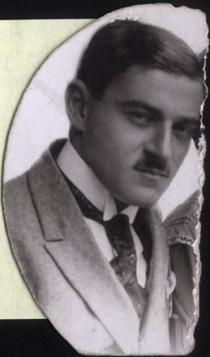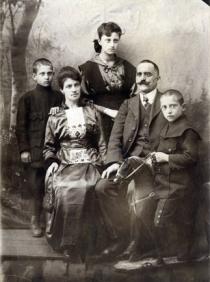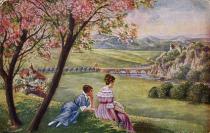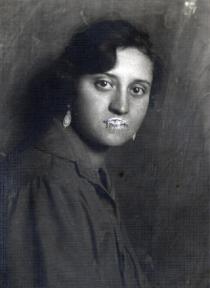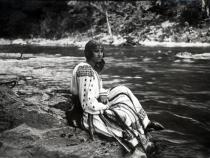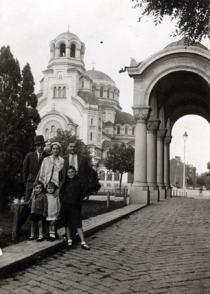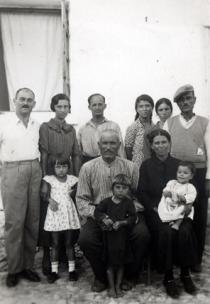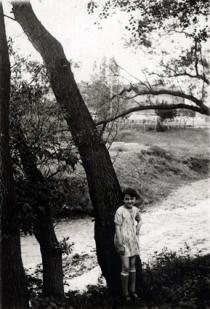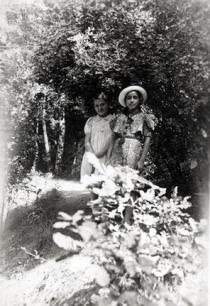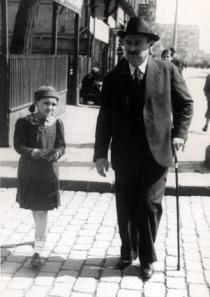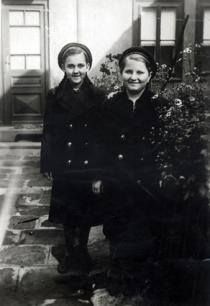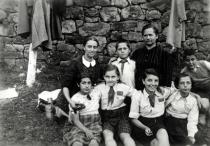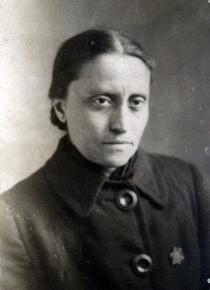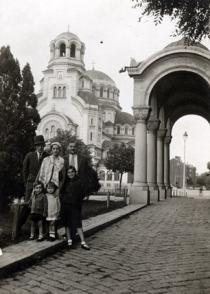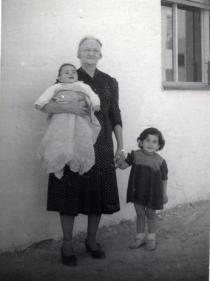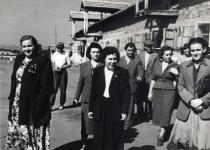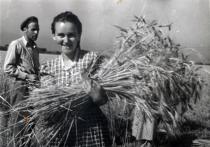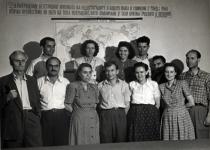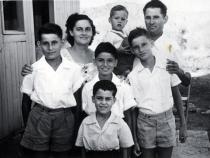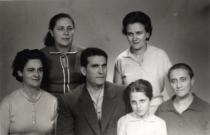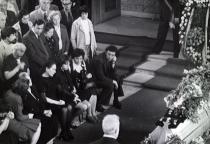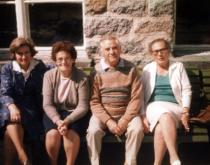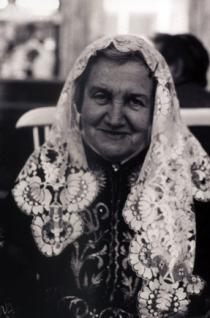This is a working brigade in Slavovitsa village, Sofia region. I am in the foreground with a sheaf of wheat. Behind me is my colleague Todor Minchev. On the back of the photo there is an inscription in pencil: 13 February 1952 - Harvesting in Slavovitsa village, Sofia region.
In the summer the people from my workplace [the Union of the Bulgarian-Soviet Societies] used to organize one-day brigades to help the agricultural workers. This was a widespread practice during the socialist regime. It was interesting for me because I had never before worked with a sickle or done any of those farming activities.
I met accidentally an acquaintance of mine, a colleague so to say. And she asked me 'What are you doing?' 'I'm looking for a job.' 'They are looking for a translator at the Union of the Bulgarian-Soviet Societies, go there. Tell them I have sent you.'. So I went there, introduced myself, showed them my excellent diploma. They asked me about what I could do and told me they would call me. And surprisingly, one morning, at seven o'clock, the doorbell rang. It was my colleague Todor Minchev with whom we had studied Russian Philology. I didn't know he was working at the union. They asked him about me and told him to invite me to start work. And, on 26th July 1951, I started work as a translator at the Union of Bulgarian-Soviet Societies. I worked in the Cultural Relations Department where we translated current materials on the activities of the Union, apart from that we prepared materials for exhibitions, we carried out contacts with creative unions and once a year we accompanied Soviet delegations that came for the month of Bulgarian-Soviet friendship. When I worked for the Union of Bulgarian-Soviet Societies, I would accompany different delegations from the socialist countries. Once I had to accompany a Polish delegation. I listened to them talking to each other and understood most of the things they said. I decided to attend two-year courses so that I could learn and use the Polish language.
I worked for the Union of Bulgarian-Soviet Societies from 26th July 1951 until 1st September 1955. In August or at the end of July 1955 the then prime-minister Vulko Chervenkov took the decision to disband the Union of the Bulgarian-Soviet Societies because, in his opinion, the movement had spread throughout Bulgaria and there was no need for a separate organization. And we were left to look for a job, wherever it was.

